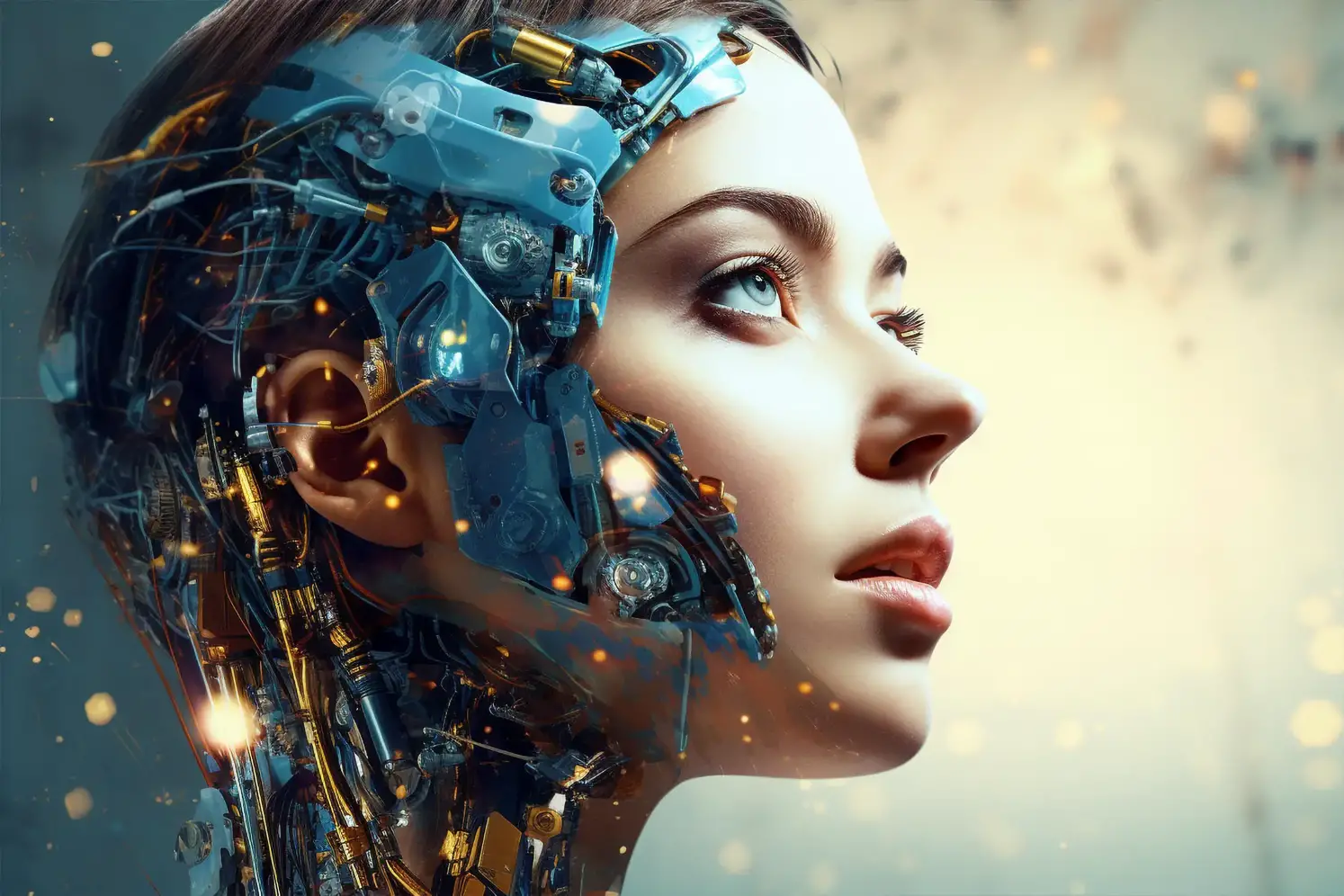When robots are laughing and crying.
Does the AI have feelings?
Does the AI have feelings? Or can it be emphatic? The fact is this program code that controls the AI determines if it can give empathic reactions. The problem with the human nervous system is that we don't make a difference in the writing of empathic letters or telling empathic stories human or AI. Our nervous system is not adapted to AI yet. And that's why we cannot separate text written by AI from text that made by humans.
What does somebody make with AI that can emulate feelings? The fact is that the cyborgs are useful tools for infiltration operations. The human-size robots can have WLAN/6G connections with the central computers. Or they can form a neural network that shares information between all group members. The robots can also act as walking neural network-based supercomputers. That can make complicated solutions.
In those networks, each member shares information and their data-handling capacity all over the network, and robots can search the internet using two ways. The robot can use traditional computers and read text from the screens. Or it can connect itself to the net by using wireless communication tools.
When the robot communicates, it must only have access to an AI-based chatbot. The robot can use that thing as a remote. In some interfaces is a speech-to-text application that transfers spoken language to AI-based chatbots. The problem with robot groups is that when one individual robot gets some data, that data will escalate all over the group.
The robot's communication is an AI-based chatbot. That connected with the physical robot.
Artificial intelligence makes many things. But do they have feelings? The fact is that the AI can imitate people. It can search data from the network, like how people react to disappointments. Then the AI can search the allowed reactions to things that people should feel. The database that AI has determines its reaction. The database can determine categories where certain phrases belong, and then it can react to those things using socially accepted words.
The AI can see if a person is crying, and then it can ask what the problem is. And if AI hears that somebody has a baby, it might say congratulations. The AI is not human. Humans determine all their reactions. So that thing makes the AI a little bit like a psychopath. If some reaction is programmed in it, that thing means the AI makes that thing.
The AI will have no conscience like humans. Only rules. That this kind of system follows is coded in its program code. And that's why the military is interested in this kind of system. In some visions, the human-looking, explosive in its body walks into the command center and detonates itself. This kind of system is the most dangerous tool that humans ever created.
It means we think that anti-crime AI tries to slip into the criminal organization. It can tell fairy tales about dead brothers. We know that this things are difficult for most of us, but the AI has no feelings. The AI always makes what its master users want. And that is the thing, that makes it dangerous.
The AI that can emulate feelings can ask for money from people. But it also can slip malicious software to companies. And that thing makes this kind of application a very dangerous tool if they are in the wrong hands.
But criminals also can benefit the AI that has feelings. The AI can send Emails to people. And play somebody who is in trouble. Then the AI can ask for money from the victims. But that is one of the smallest problems with this kind of thing. The AI can send computer viruses or so-called malicious software in that message.
https://scitechdaily.com/ai-empathy-is-it-technology-or-just-our-perceptions/





No comments:
Post a Comment
Note: Only a member of this blog may post a comment.